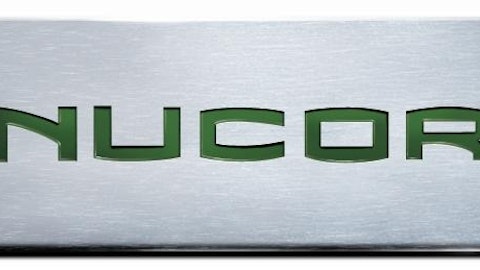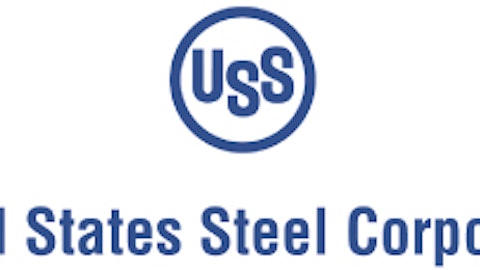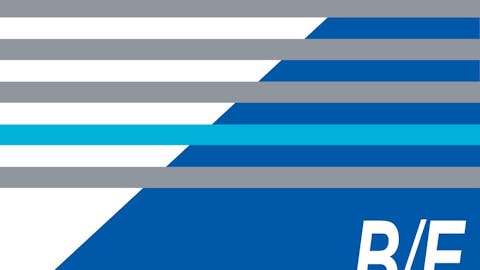Minerals producer Cliffs Natural Resources Inc (NYSE:CLF) recently announced that president and chief executive officer Joseph Carrabba has decided to retire. Most of the time a CEO departure isn’t a big deal, but every once in awhile it can signal an upcoming change in company control via merger or acquisition. It’s a pretty rare occurrence but happened relatively recently at a company called Massey Energy.
In mid-December 2010, Don Blankenship, CEO of coal-mining giant Massey, said he was retiring at the end of the month. The company had been under pressure from a springtime mine explosion that killed 29 miners and its share price was cut in half after the accident.
Blankenship simply stated that “it is time to move on” and no other explanation for his departure was given. It was rumored his opposition against selling the company on the cheap forced him out. Not long after his departure, in early January 2011, Massey reported it would be acquired by competitor Alpha Natural Resources, Inc. (NYSE:ANR) for $7.1 billion.
Could Cliffs Natural Resources Inc (NYSE:CLF)’ CEO exit be a sign of a similar event? Though unlikely, there are a few other factors that make a change in control a possibility.
Exodus of other key personnel
Instances of other top executives leaving Cliffs Natural Resources Inc (NYSE:CLF) could be telling. Within the CEO-departure press release, the immediate retirement of Laurie Brlas, executive vice president and president of global operations, was mentioned. Since 2006, Ms. Brlas has held increasingly important positions at Cliffs and could reasonably have been deemed to be second-in-command within the company.

While these departures do not prove anything beyond major changes seem to be afoot at Cliffs Natural Resources Inc (NYSE:CLF), the relative immediacy of such high-profile exits is intriguing and could be meaningful.
Substantial interest in iron-ore
Besides high-level personnel changes, deal activity in the iron-ore sector might also hint that Cliffs Natural Resources Inc (NYSE:CLF) could be in play.
In January, Taiwan’s China Steel and South Korea’s POSCO (ADR) (NYSE:PKX) led a group buying 15% of ArcelorMittal (ADR) (NYSE:MT)‘s Canadian iron-ore unit for $1.1 billion, or about $488 per annual ton produced. Arcelor, the world’s largest steelmaker, wanted to sell its stake to help raise cash and reduce debt. The company had already slashed its dividend and moved output to cheaper sites as challenging economic conditions weighed on its top and bottom lines.
ArcelorMittal (ADR) (NYSE:MT) has made great strides in stabilizing the business. It reduced net debt around 17%, made notable expense reductions and maintained an operating profit in the latest quarter. As steel demand returns, which may be occurring as first-quarter shipments were up 4.7% from the previous period, profits may spike due to the firm’s leaner form. That could meaningfully raise its share price from a currently depressed level.
Better times also means ArcelorMittal (ADR) (NYSE:MT), like other foreign steelmakers, will need increased access to ore. Besides generating around 15 million tons on its own last year, the company also had to buy from other producers, including roughly 17% of Cliffs Natural Resources Inc (NYSE:CLF)’ dollar-value production.
This kind of potential demand may be a major reason interest in safe mineral reserves has been so robust. It’s been reported that world class miner Rio Tinto plc (ADR) (NYSE:RIO) has narrowed the number of bidders in the sale of its stake in Canada’s largest iron-ore producer from an initial 13 to five or six. Like ArcelorMittal (ADR) (NYSE:MT), Rio Tinto is trying to raise cash to reduce a substantial debt burden and its ore assets had more than sufficient attention.
Possible suitors believed to be involved include private equity firm The Blackstone Group L.P. (NYSE:BX), miner and trader Glencore Xstrata, and Canada’s largest diversified miner Teck Resources Ltd (USA) (NYSE:TCK). Rio Tinto plc (ADR) (NYSE:RIO) believes the entire value of the Iron Ore Company of Canada should be around $8 billion, making its stake worth around $3.5 billion to $4 billion, or roughly $440 per ton on Rio’s allotted production.
An attractive takeout valuation
Since Cliffs Natural Resources Inc (NYSE:CLF) is a major global producer, it makes sense that an interested iron-ore buyer would consider the firm, which operates in four basic segments: U.S. ore, Eastern Canada ore, Asia Pacific ore, with total company 2012 production of 48 million metric tons; and metallurgical coal that generated about $880 million in revenue last year.
The company’s valuation might look tempting to any motivated acquirer. Assuming iron-ore production of around 40 million tons valued at a heavily discounted $200 per ton — compared to the roughly $450 per ton in the ArcelorMittal (ADR) (NYSE:MT) deal or Rio Tinto plc (ADR) (NYSE:RIO)’s estimate — Cliffs Natural Resources Inc (NYSE:CLF)’ enterprise value (market capitalization plus debt) would equal around $8 billion.




